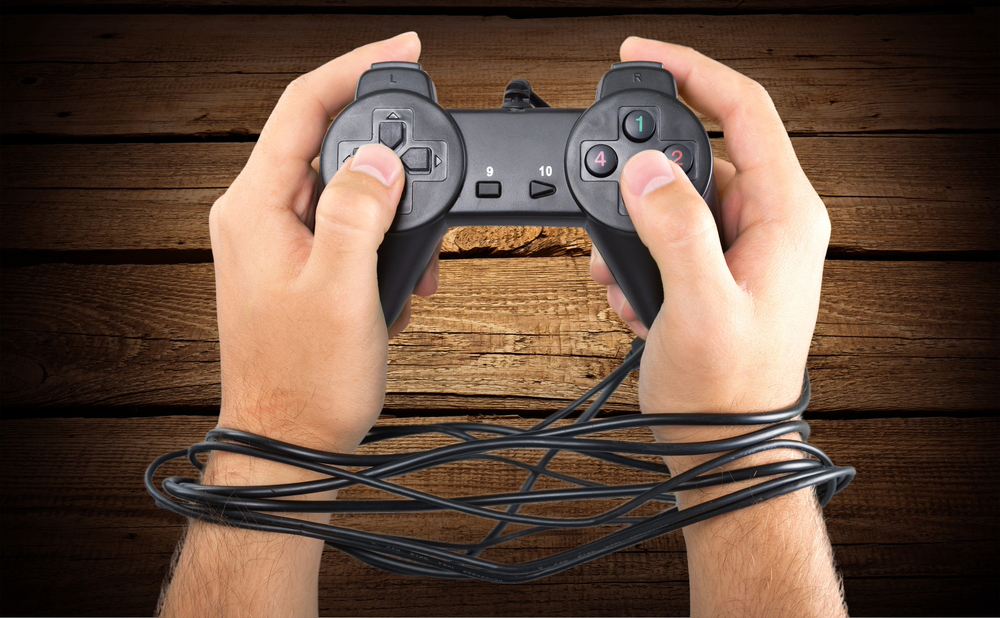“He is playing games all the time. Every chance he gets! From the time he gets home until bedtime, he’s in his room on that computer. And spends almost no time with the family. Is he addicted? I’m really worried.”
I can’t tell you how many times I have heard this or some variation of this complaint from parents.
Many parents worry about the violence. Others worry about the interference with face-to-face time with peers …
There is no doubt that video games are incredibly popular. Many parents worry about the violence. Others worry about the interference with face-to-face time with peers, while others worry about taking time away from academics and more productive hobbies like reading, sports or artistic activities.
Gaming Disorder: What is it?
The concern about video gaming addiction has been reviewed by the World Health Organization, which produces the International Classification of Diseases (ICD). In their 11th edition, approved on May 25, 2019, they include Gaming Disorder. It’s considered an “addiction,” much like gambling addiction.
To qualify for a disorder, one must have five or more of the following behaviors, as proposed by the American Psychiatric Association’s (APA) Diagnostic and Statistical Manual of Mental Disorders (DSM-5):
- Preoccupation with games – the individual thinks about playing or eagerly looks forward to playing, to the point that it becomes the dominant activity in daily life
- Experienced withdrawal – when taken away, the individual becomes irritable, sad, or anxious
- Developed tolerance – the need to spend increased amounts of time playing
- Loss of control – unsuccessful attempts to control preoccupation with the game
- Continued use – excessive use despite awareness of problems in other areas of life caused by the game-playing
- Misleading others – family members, therapists, or others about the amount of game-playing
- Use as an escape – playing in order to relieve a negative mood
- Reduced interests – loss of interests in previous hobbies or other forms of entertainment

• How to be “Smart” in the Time of Smartphones
• Clay Center Launches Youth Mental Health Initiative
• How to Discuss Sexting with Teenagers
• How to Cope with Generalized Anxiety Disorder
Skepticism about Addiction
Of interest is that the DSM-5 has noted that these behaviors are worthy of future study in the context of internet gaming disorder, specifically, but it has not been formally noted as a psychiatric disorder. One reason that the APA does not currently include internet gaming addiction as a disorder is related to a recent study of almost 19,000 young adults aged 18-24 from the United States, the United Kingdom, Canada and Germany, which involved a participant checklist of these symptoms. All participants played internet games. A little more than two young adults out of every 100 reported at least five of the behaviors and fewer than one in 100 said they were distressed.
So, if this is a real disorder, it’s pretty rare. There are very few other studies that look at problematic game-playing with consistent methods. This was one reason for skepticism that it’s a major addiction.
Others have also pointed out that the criteria may be misleading. If playing a game is an escape from stress, maybe this is not so bad. And if it is a serious interest, how is this different from a kid or young adult who is obsessed with reading science fiction or playing the piano to the exclusion of other activities? And for other kids, what if playing games is a key part of maintaining relationships with peers? Would many parents object if their teen was obsessed with chess or fantasy football? Maybe not. It seems there is a bias from many that immersion in the world of video games is somehow a “bad” activity or a waste of time when compared to other kinds of activities.
But apart from debating the pros and cons of video games vs. other activities, and apart from the relative infrequency of the proposed disorder, if it’s your kid, it is a problem.
What Can Parents Do?
1. Look for the behaviors listed below. If your child:
- plays in a way that is very consuming;
- has declining academics;
- is glued to a screen (phone, tablet, computer) to the exclusion of family and friends;
- has limited other activities;
- is not telling the truth about time spent into the late-night hours (many online gamers, especially playing with kids abroad, play after midnight);
- refuses to take a family trip or go on summer vacation because it takes time away from gaming;
Houston, we have a problem!
Most parents have never played video games with their kids or even watched them play.
2. The problem may not be as simple as a gaming disorder. If your child is playing in a way that interferes with normal social and academic areas, it may be a symptom of another problem such as depression, anxiety, ADHD, another learning disorder, PTSD from bullying, or another psychiatric disorder.
3. Open a conversation. Begin with open-ended questions about your interest in what games your child is playing, what makes it so much fun and how advanced he or she is. Be careful not to make it sound like an interrogation! Most kids will anticipate these kinds of questions in that kind of way, and assume they are aimed at fueling ammunition to get them to stop playing. Please try to have an open mind and be curious.
4. Play with your kid. I know it may not be fun for you. Most parents have never played video games with their kids or even watched them play. Few know the content, skills needed or objectives of the games, but there is no better way to engage with your child in this area of his or her life than sitting down and just playing along. It will not only demonstrate your understanding and acceptance of the interest but allow for more candid conversations about the impact of the game-playing on your child’s life.
To make a donation to support the work of Mass General’s Clay Center for Young Healthy Minds, please contact us.
This article first appeared on the Clay Center for Young Healthy Minds website.







